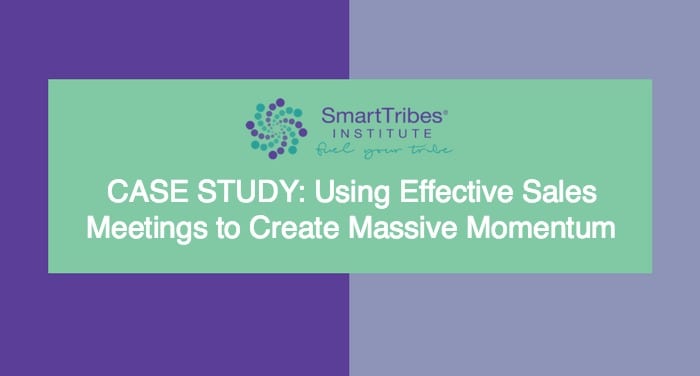
*As originally seen on Forbes.com
Change blindness = when we miss a huge change because we were focused elsewhere.
Have you experienced change blindness?
Perhaps a key employee became disengaged and you could have prevented it. Or a high-potential employee kept asking for greater challenge, and before you noticed the flight risk, they left.
We’ve all experienced change blindness. It’s often a result of not being present because we are pulled in too many directions.
Heck, you likely would’ve really liked to see the change you missed, maybe you would have even benefited from it, but your brain deleted it. Why?

Shutterstock
Because while what you look at matters, what you see matters even more.
Let’s unpack change blindness. Here are the players:
- Cortisol = a hormone released in response to stress
- Dopamine = a neurotransmitter with many roles, including signaling cells when the anticipation of reward is present and driving reward-motivated behavior
- Oxytocin = a hormone that contributes to feeling connected to others
- Your Sensory Cortices (SCs) = the parts of your brain responsible for “bottom-up” attention: responding to things that grab your attention and cause you to react (alarms, email alerts, or other outside stimuli that you react to compulsively and often without choice). Generally Low-Value Activities and reactive or even menial brain work occur here.
- Your Prefrontal Cortex (PFC) = the part of your brain responsible for “top-down” attention: decision-making, planning, envisioning outcomes, where you choose to focus, and how you choose to respond to things outside of you and inside of you. Generally High-Value Activities and strategic brain work occur here.

Shutterstock
Your Brain On Change
Why do we have so much trouble seeing change when it’s right before our eyes? Because we’re still trying to cope with the changes that happened yesterday, last week, or last month. Let’s take a look at our brain on change.
Whenever change happens, your brain releases stress hormones, like cortisol, which then fire up cell-signaling cytokines that alter your body. Suddenly your ability to regulate your behavior and emotions is compromised. Your ability to pay attention is compromised. Your memory, learning, peace, and happiness are all compromised.
When you’re overloaded on stress, you also tend to feel isolated, which decreases oxytocin. Then it’s all too easy to find yourself on a downward spiral of disconnection: from yourself, others, your world, your purpose, and even your place in the grand scheme of things. Today, we see increasing chaos, distrust, aggressiveness, and many other behavioral challenges in our world due to disconnection.
Being in a state of stress or fear also overstimulates our sensory cortices (SCs) and inhibits our prefrontal cortex (PFC). Increased sensory stimulation and decreased cognitive stimulation results in more irrational risk taking, obesity, aggression, addiction, and even schizophrenic behavior. It’s a big deal.
At the same time, we’re constantly checking email, texts, and other alerts to make sure we’re safe, creating excess dopamine. Remember, dopamine is the neurotransmitter fired when we anticipate reward or receive an unexpected reward, pleasure, or praise. But excess dopamine is a problem: it also inhibits our PFC, further affecting our ability to make good decisions, focus, and regulate our emotions and behavior.
FOMO, or the fear of missing out, is not necessarily a bad thing. Yes, it often causes us to addictively check our messages, emails, and social media feeds. However, what’s beneath it is the desire to connect. The desire for warmth. The desire to be seen, to be safe, to belong, and to matter. Instead of dopamine, what we really want is oxytocin, the bonding hormone, to help us know we’re not alone.
It’s Time To Reconnect
When you feel blindsided by change, the solution is simple: it’s time to connect again. To trust again. When oxytocin levels are up, cortisol levels are down. When we feel connected, we know we’re safe, we belong, we matter.
So how do we connect in this stress-heavy era? First, remember that people are essentially good. We all just have a greater or lesser ability to connect with ourselves and others. When you meet people who are angry or distant, perhaps they simply haven’t learned or cultivated the ability to connect with others due to the past pain or hurt. At times like this, it’s essential for us to have compassion and do what we can on our side to reconnect with them.
There’s no point judging someone who can’t reach out to others. Better to reach out and give them as much of an experience of “same as” as possible to help them re-establish their ability to connect and give them a sense of safety, belonging, and mattering. It just might help them reconnect in every other area of their life.
Tribes are primal. Being together with other humans is how we have survived for centuries. And yet technology, in an attempt to bring us together, has actually brought us apart. We all want to be in the “in crowd,” yet we are seeing more and more separation. This makes change even harder, because when times are uncertain, we need one another more than ever.
So while change blindness may be prevalent, change presence can be, too.
Think about the change you’re going through right now. In the midst of it, how can you connect with your tribe today?






